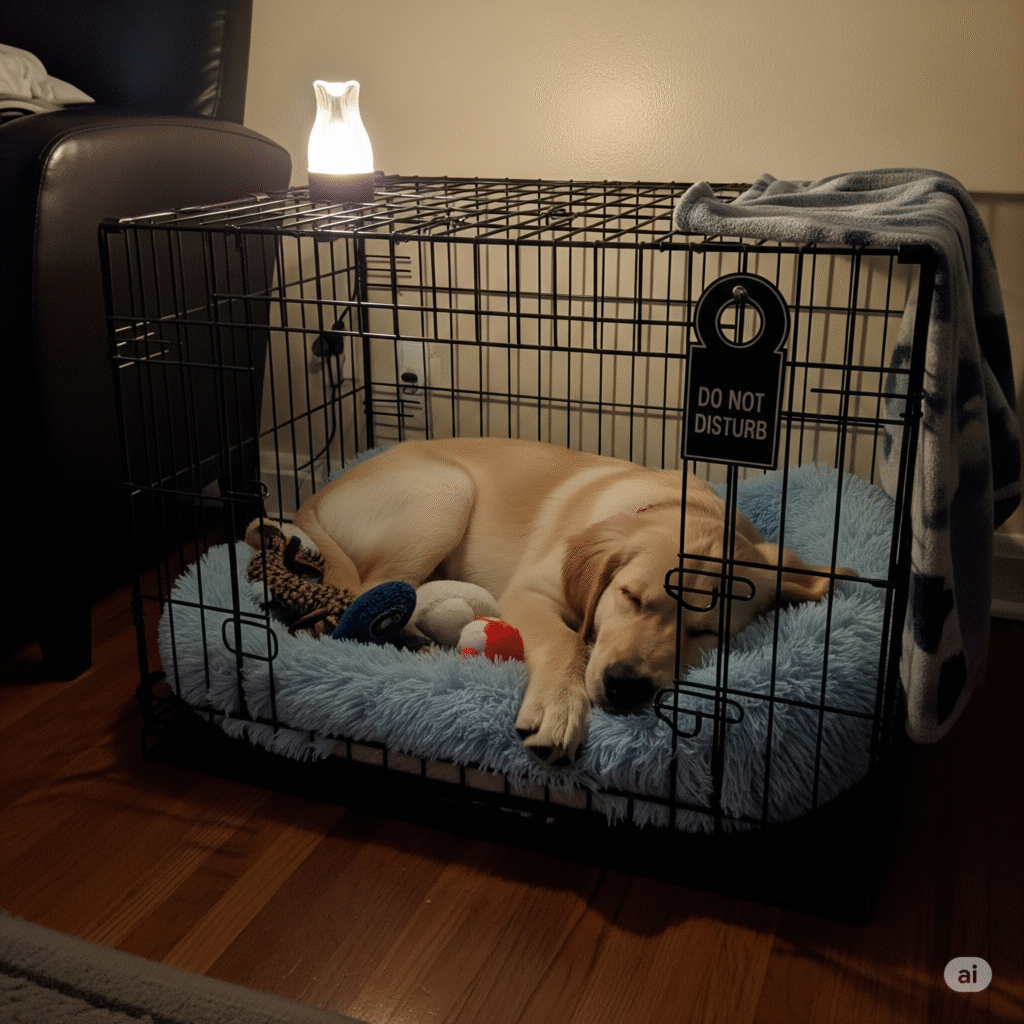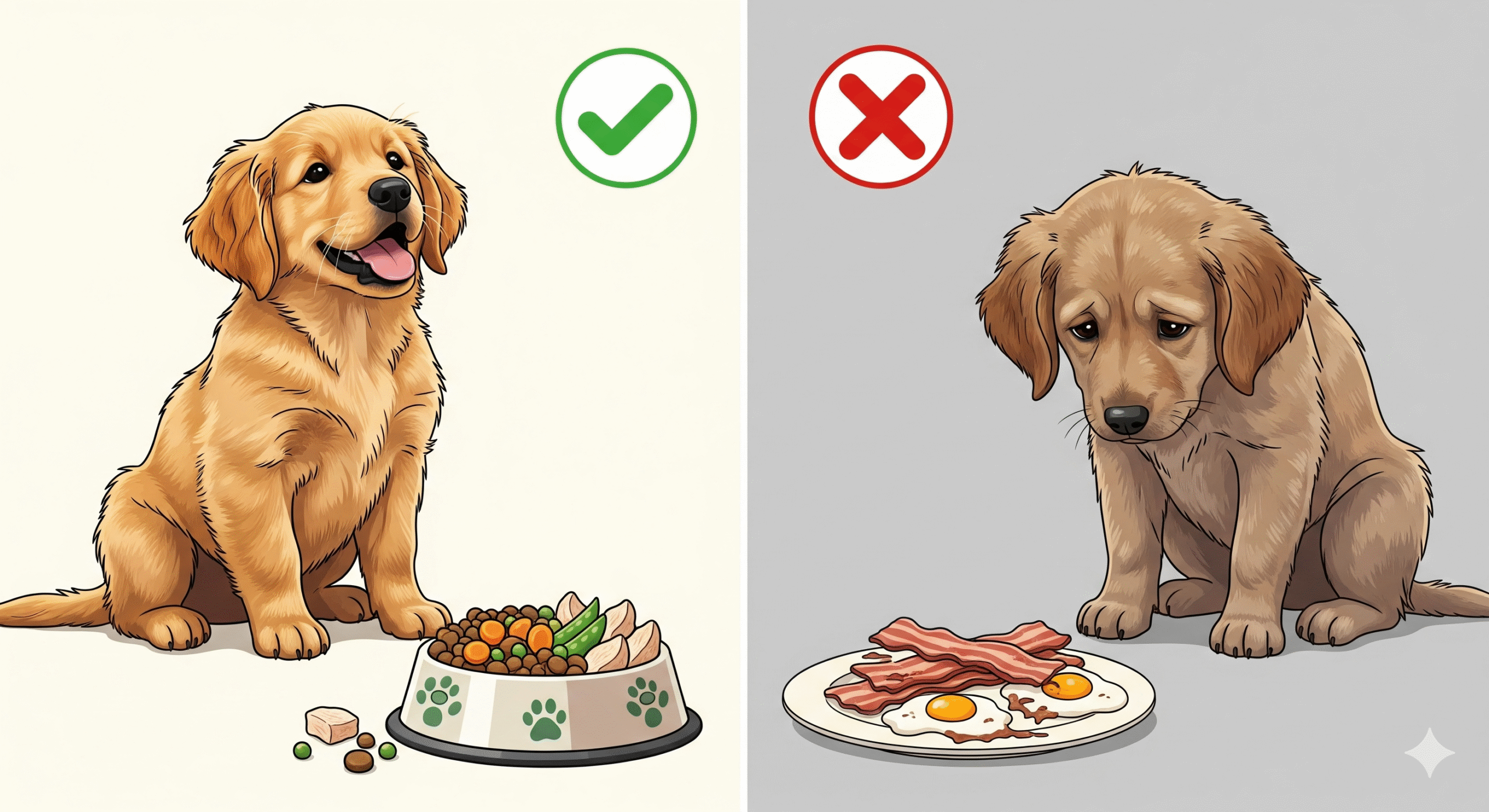Bringing home a new puppy is exciting, but nighttime barking can quickly turn joy into exhaustion. If your furry friend won’t settle down, you’re not alone—many puppy parents struggle with this issue. The good news? With the right strategies, you can stop puppy barking at night and reclaim your sleep.
In this guide, we’ll cover:
✅ Why puppies bark at night
✅ 5 expert-backed fixes to quiet them down
✅ Pro tips for long-term success
Let’s dive in!
Why Do Puppies Bark at Night? 🧐
Before fixing the problem, it’s important to understand why your puppy is barking. Common reasons include:
- Separation anxiety 🐾 – Puppies miss their littermates and feel lonely.
- Hunger or thirst 🥣 – A growling tummy can keep them awake.
- Need for potty breaks 🚽 – Young pups can’t hold it all night.
- Boredom or pent-up energy 🎾 – Lack of daytime exercise leads to restlessness.
- Environmental triggers 🌙 – Noises, shadows, or unfamiliar surroundings.
Now, let’s tackle the solutions!
5 Quick Fixes to Stop Puppy Barking at Night
1. Create a Cozy Sleep Environment 🛏️
Puppies need a safe, comfortable space to sleep. Try these tips:
- Use a crate (if crate-trained) with soft bedding.
- Keep the room dark and quiet (blackout curtains help).
- Add a warm blanket or heartbeat toy to mimic littermates.
💡 Expert Tip: Place the crate near your bed at first, then gradually move it farther away to ease separation anxiety.
2. Establish a Bedtime Routine ⏰
Consistency is key! A predictable nighttime routine signals that it’s time to wind down.
- Last potty break right before bed.
- Calm playtime (no roughhousing before sleep).
- Quiet cuddles or gentle petting to relax them.
🚫 Avoid: Feeding or giving water 1-2 hours before bed to reduce midnight potty needs.
3. Tire Them Out Before Bedtime 🏃♂️
A tired puppy is a quiet puppy! Physical and mental stimulation during the day prevents nighttime restlessness.
- Evening walk or play session (20-30 mins before bed).
- Puzzle toys or training exercises to mentally exhaust them.
- Socialization (if safe) to reduce anxiety.
🔥 Pro Tip: A 10-minute training session can tire a puppy out faster than an hour of running!
4. Ignore Attention-Seeking Barking 🙉
If your puppy barks just for attention, rewarding them (even with scolding) reinforces the behavior.
- Wait for a pause in barking, then praise/reward the silence.
- Avoid eye contact or talking when they bark at night.
- Use earplugs or a white noise machine if needed.
⏳ Patience is key: It may take a few nights, but consistency works!
5. Use Positive Reinforcement Training 🎖️
Teach your puppy that quiet = rewards with these steps:
- Say “quiet” when they stop barking (even briefly).
- Immediately reward with a treat or praise.
- Gradually increase quiet time before giving treats.
🏆 Bonus: Pair this with a clicker for faster learning!
Long-Term Strategies for a Quiet Puppy 🌟
While the above fixes work quickly, these habits ensure lasting results:
✔ Crate training (if not already done).
✔ Daytime socialization to reduce anxiety.
✔ Regular exercise & mental stimulation.
✔ Sticking to a schedule (feeding, potty, sleep).

Final Thoughts: Restful Nights Ahead! 🌙
Stopping puppy barking at night takes patience, but with these 5 quick fixes, you’ll see improvements fast. Remember:
🔹 Comfort is key – Make their sleep space inviting.
🔹 Routine rules – Consistency reduces anxiety.
🔹 Training triumphs – Reward quiet behavior.
Make the Crate a Happy Place
Avoid the common mistakes that make puppies fear their crate. Our positive, force-free method builds confidence and makes the crate your puppy’s favorite nap spot.






